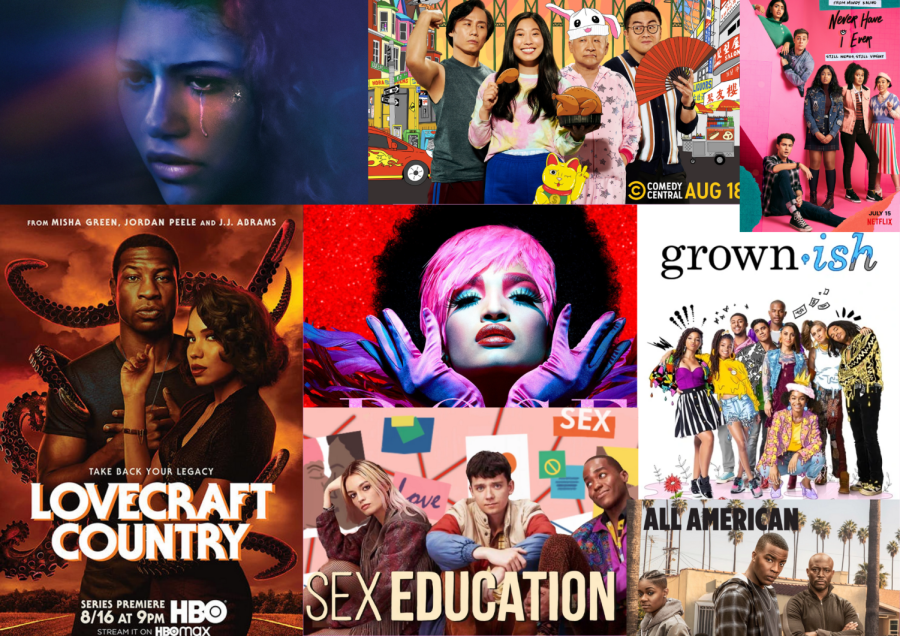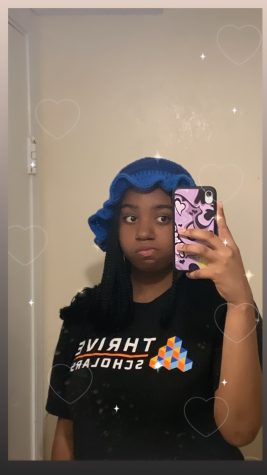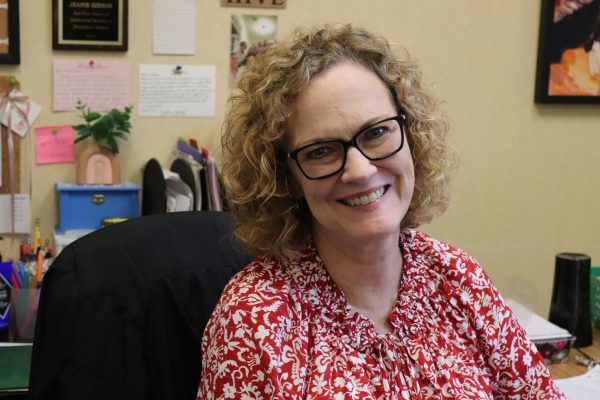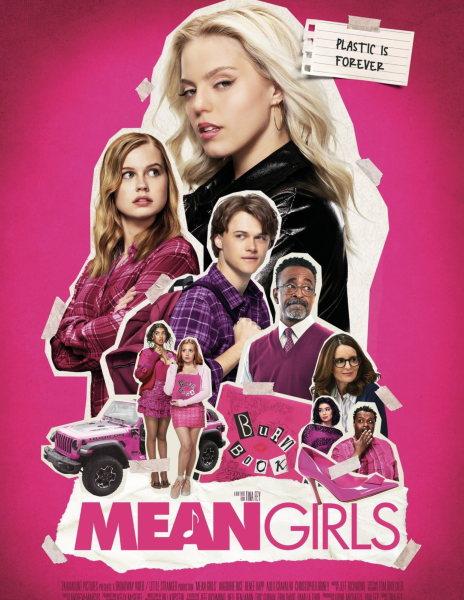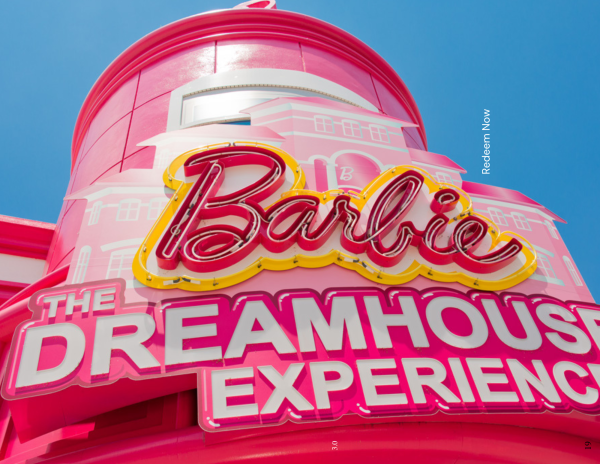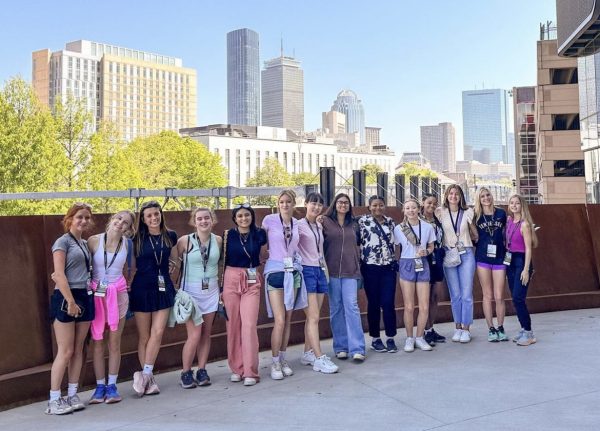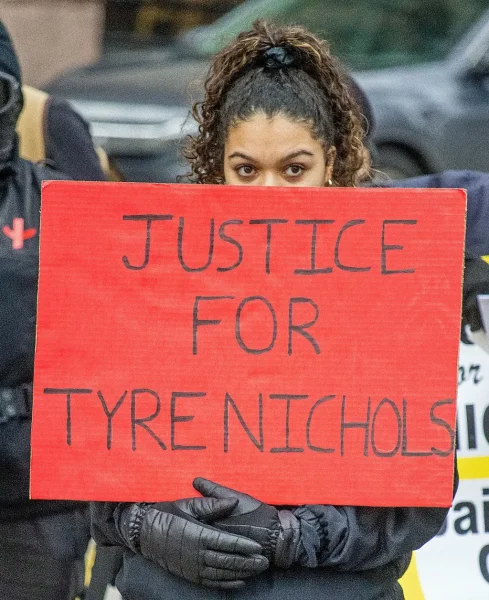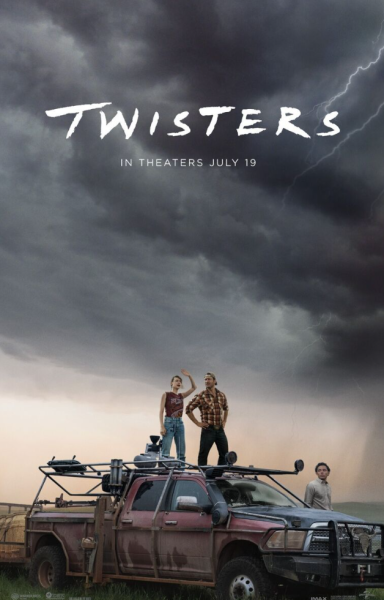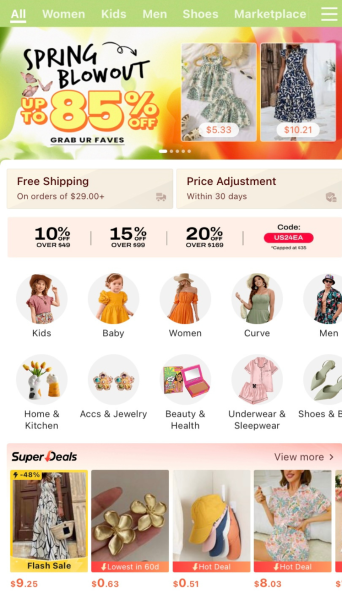Diversity in Media
Popular 2021 shows with positive representation. Collage created by Lacy Williams
This year in the media has been filled with all sorts of people calling out producers and content creators on the lack of diversity as well as the spread of harmful stereotypes of marginalized groups. Although Hollywood and mainstream media have been notorious for their lack of people of color or LGBTQ+ members in their works, members of these groups have worked even harder this year to have their voices heard.
The year 2020 was filled with various protests against the racial injustices and unequal opportunities for minority groups, for example the Black Lives Matter protests and the violent attacks against Asian Americans. Following these extremes, members who belong to these minority groups seemed to reach their breaking point and rightfully decided that ignorance and prejudice had no place in 2021. Although tackling the various political barriers is a much harder battle, fighting for fair representation in the media itself is a much more manageable task.
The Primetime Emmy Awards premiered on September 19, and surprisingly no people of color (POC) won any major awards. Popular shows such as ‘Pose’, a drama series that centers around the lives of talented POC and LGBTQ+ people in New York City and more were snubbed by series like ‘The Crown.’ The issue does not lie with the shows that won, many people do believe that they were good series that deserved to be recognized, however, shows with primarily white, straight casts won dozens of awards while the other shows mentioned barely got recognition. What really drove people to anger was the fact that most of the POC were not awarded to please white viewers. The award show felt as if they would lose many viewers if they were to award the more diverse shows. It was even worse because the award show was hosted by a black man, Cedric the Entertainer.
This led to a Twitter outrage calling out the show for using POC simply for views, but not crediting the work they have produced. One tweet even read, “#Emmys do this every year: Nominate a diverse selection of our faves, only to give them to the same white actors and/or stories.” Another viewer agreed by tweeting, “Middle-aged white folks in conflict or British period pieces will win over nuanced, multi-dimensional plots involving characters of color.” The goal with this constant outrage with the Emmys is for other companies to finally see that slick tactics such as this are no longer tolerable, and that minority groups should be recognized and displayed in a positive light as well.
Although a lot of companies still have a lot to work on when it comes to diversity, there are many that are giving their platforms to let the voices of people, who are often left out, be heard. For example, streaming platforms such as Netflix, HBO Max, and Hulu have added sections to their platforms dedicated to films about or produced by people of color or members of the LGBTQ+. By doing this, these companies have made content for marginalized groups more accessible, and it could mean a lot for people who do not get the chance to see themselves represented often.
Kendyl Brown, ‘23, commented on how much seeing diversity impacts a person by saying, “It feels good to see someone so similar to me do something so amazing. It gives me hope.” Today, there are shows like ‘Euphoria,’ ‘Nora From Queens’, ‘Falcon and Winter Soldier’, ‘Squid Game’, and many more that display positive representation of groups that are normally stereotyped. According to Zain Amro, ‘23, positive representation is an effective way to battle the false ideas implanted in the minds of viewers. She says, “The Middle East in the news is usually depicted as violent, poor, or experiencing some sort of crisis which is obviously not true, but it has become a common idea due to the media. Youtube channels such as ‘The Cut’ go out of their way to display the true nature of people of these groups, and how each person within it is still so unique is a good way to view diversity.”
Many companies are taking the initial steps to include accurate diversity in their media, and although they have a long way to go, they are slowly getting the idea thanks to the help of social media and protests. Hopefully, in the near future, there will be less need for boycotting production companies and streaming services over the lack of representation, and more specials highlighting more diverse groups of people. In the meantime, Hutchison students can be more aware of the media they are consuming, call out those when they need to be, and provide a safe space for those in marginalized communities to be able to share their opinions.



